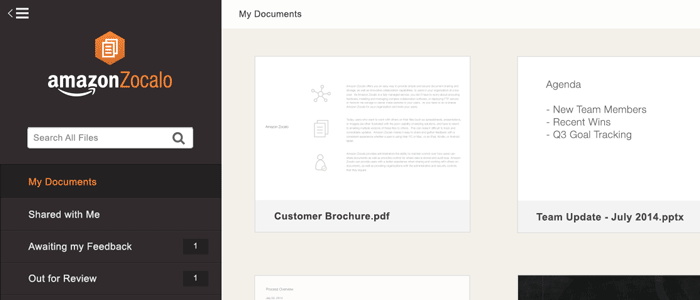Want help with securing your AWS account? Here are some resources. – AWS Security Blog.
Amazon Web Services
Amazon Newest Service – Zocalo – Secure Document and File Storage
“Amazon Zocalo is a fully managed, secure enterprise storage and sharing service with strong administrative controls and feedback capabilities that improve user productivity. Users can comment on files, send them to others for feedback, and upload new versions without having to resort to emailing multiple versions of their files as attachments. Users can take advantage of these capabilities wherever they are, using the device of their choice, including PCs, Macs, and tablets. Amazon Zocalo offers IT administrators the option of integrating with existing corporate directories, flexible sharing policies, audit logs, and control of the location where data is stored.”
They are offering a free trial for 30 days, 200 GB and 50 users.
Features include
- Single console for all files
- Commenting on files
- Sending files to others for feedback
- Uploading new versions without emailing files as attachments
- Teammates can leave comments by highlighting a section of a file, or specific text, and typing feedback
- Users can set optional deadlines for feedback
- Track files that are out for review
- Be notified by email when they have been asked to provide feedback
- Automatic version control
- Overlay technology that displays all comments from all users
- Automatically sync files across all the users devices using encryption at rest and in transit
- Tablet optimized experience across iPad, Android and Kindle
- Active Directory integration
- Auditing
- Integration with Amazon Workspaces


